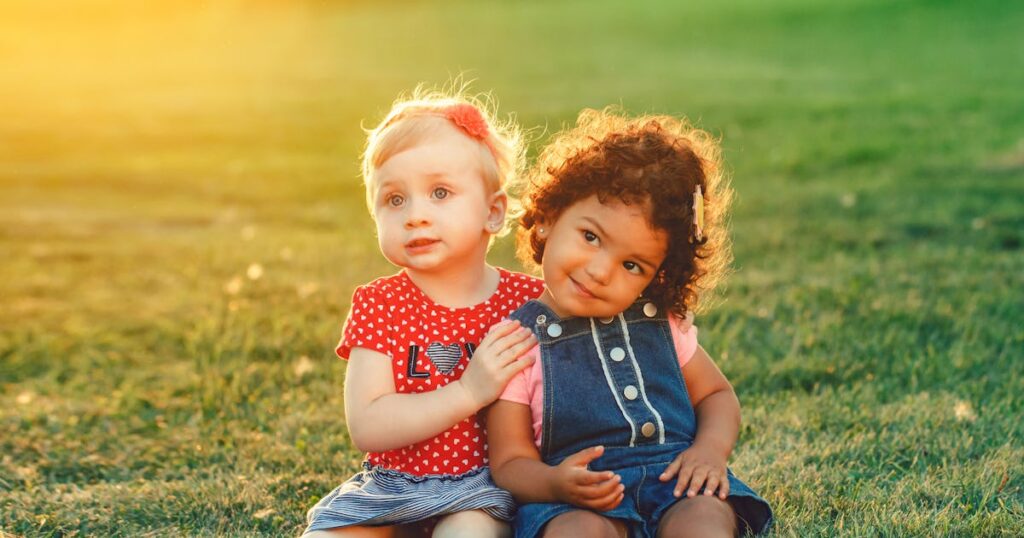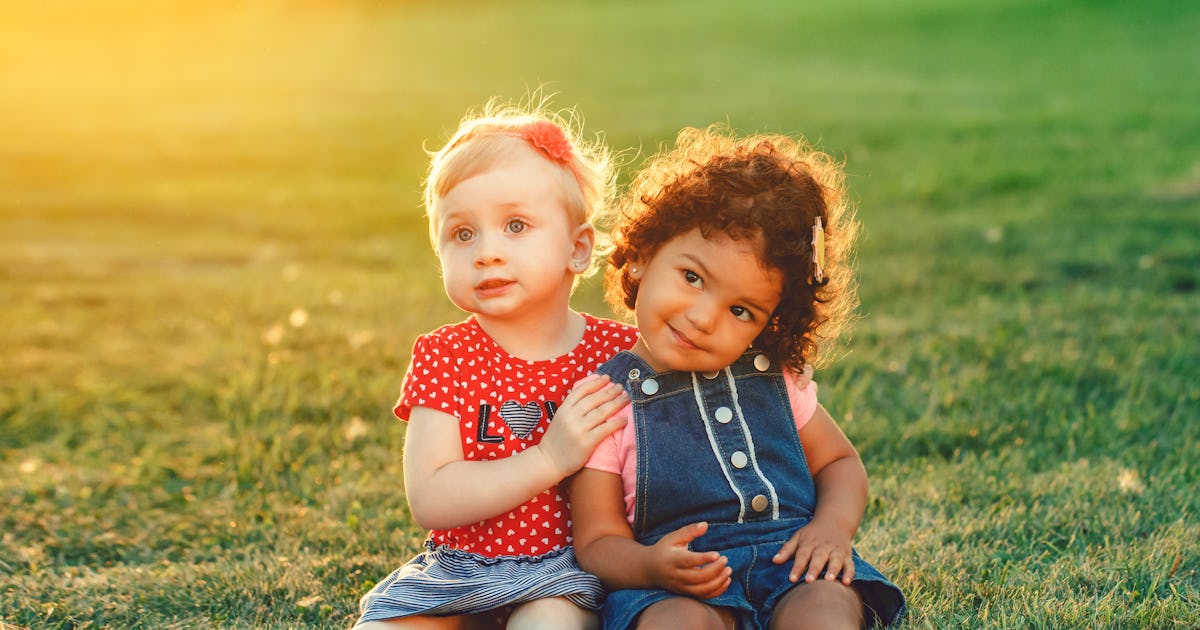
The Essential Qualities of a Good Friend for Kids: A Comprehensive Guide
Friendship is a cornerstone of childhood development, shaping social skills, emotional intelligence, and overall well-being. Teaching children about the qualities of a good friend is crucial for fostering healthy relationships and building a supportive network. This guide explores the key characteristics that define a positive friendship, offering insights for parents and educators on how to nurture these qualities in children.
Understanding the Importance of Friendship
Before diving into specific qualities of a good friend, it’s essential to understand why friendship is so vital for kids. Friends provide companionship, emotional support, and a sense of belonging. They help children learn how to navigate social situations, resolve conflicts, and develop empathy. Positive friendships can also boost self-esteem and confidence, contributing to a child’s overall happiness and success.
Furthermore, the qualities of a good friend are not innate; they are learned and cultivated over time. By actively teaching children about these qualities, we empower them to build and maintain meaningful relationships throughout their lives. [See also: How to Help Your Child Make Friends]
Key Qualities of a Good Friend
Kindness and Compassion
Kindness and compassion are fundamental qualities of a good friend. A kind friend is considerate of others’ feelings, shows empathy, and offers support when needed. They are gentle and understanding, avoiding harsh words or actions that could hurt their friends. Teaching children to practice kindness involves encouraging them to think about how their actions affect others and to offer help and support to those in need.
For instance, a child exhibiting kindness might share their toys with a friend, offer comfort when someone is sad, or stand up for a friend who is being bullied. These acts of kindness, however small, contribute to a positive and supportive friendship.
Honesty and Trustworthiness
Honesty and trustworthiness are essential for building strong and lasting friendships. A good friend is truthful and reliable, keeping their promises and being someone that others can count on. They don’t spread rumors or betray confidences, fostering a sense of security and trust within the friendship.
Teaching children about honesty involves explaining the importance of telling the truth, even when it’s difficult. It also means emphasizing the value of keeping promises and being reliable. A child who is honest and trustworthy is more likely to be seen as a good friend and valued member of the group.
Respect and Acceptance
Respect and acceptance are crucial qualities of a good friend. A respectful friend values others’ opinions and differences, even when they don’t agree. They listen attentively, avoid interrupting, and treat everyone with courtesy and consideration. Acceptance means embracing others for who they are, without trying to change them.
Children can learn to show respect by practicing active listening, using polite language, and avoiding judgmental comments. They can demonstrate acceptance by including others in activities, celebrating diversity, and standing up against prejudice. These behaviors create a welcoming and inclusive environment for everyone.
Loyalty and Support
Loyalty and support are defining qualities of a good friend. A loyal friend stands by their friends through thick and thin, offering unwavering support and encouragement. They are there to celebrate successes and provide comfort during difficult times. Loyalty means being committed to the friendship and prioritizing the well-being of their friends.
Children can learn to demonstrate loyalty by standing up for their friends, offering help when needed, and being a reliable source of support. This might involve defending a friend who is being teased, helping with homework, or simply being there to listen when someone is feeling down.
Communication and Conflict Resolution
Effective communication and conflict resolution skills are vital qualities of a good friend. A good friend communicates openly and honestly, expressing their feelings and needs in a respectful manner. They are also able to resolve conflicts constructively, finding solutions that work for everyone involved. This involves listening to others’ perspectives, compromising, and avoiding personal attacks.
Teaching children about communication involves encouraging them to express their feelings in a healthy way, using “I” statements to avoid blaming, and practicing active listening. Conflict resolution skills can be developed by teaching children how to compromise, negotiate, and find mutually agreeable solutions. [See also: Conflict Resolution Strategies for Kids]
Fairness and Sharing
Fairness and sharing are important qualities of a good friend, especially in younger children. A fair friend treats everyone equally, without showing favoritism or bias. They are willing to share their toys, resources, and attention with others. Fairness means playing by the rules and avoiding cheating or taking advantage of others.
Children can learn to be fair by practicing turn-taking, sharing toys and resources, and following rules in games and activities. Parents and educators can reinforce these behaviors by modeling fairness and rewarding children for their efforts.
Fun and Playfulness
While the more serious qualities of a good friend are important, let’s not forget fun and playfulness! A good friend brings joy and laughter to the friendship, making it an enjoyable and positive experience. They are willing to engage in fun activities, share jokes, and create memorable moments together.
Encouraging children to be playful and have fun can involve suggesting games, activities, and outings that they can enjoy together. It also means allowing them to be silly and express themselves freely, without fear of judgment. After all, friendship should be a source of happiness and enjoyment.
How to Nurture These Qualities in Children
Modeling Good Friendship
Children learn by example, so the best way to teach them about the qualities of a good friend is to model these qualities in your own relationships. Show kindness, respect, honesty, and loyalty in your interactions with others. Demonstrate effective communication and conflict resolution skills. By observing these behaviors, children will learn how to apply them in their own friendships.
Encouraging Empathy
Empathy is the ability to understand and share the feelings of others, and it’s a crucial component of good friendship. Encourage children to think about how their actions affect others and to consider different perspectives. Ask questions like, “How do you think your friend felt when that happened?” or “What would you do if you were in their shoes?”
Providing Opportunities for Social Interaction
Children need opportunities to practice their social skills and build friendships. Provide them with opportunities to interact with other children through playdates, extracurricular activities, and community events. These experiences will allow them to develop and refine the qualities of a good friend in a supportive environment.
Teaching Conflict Resolution Skills
Conflicts are inevitable in any friendship, but they can be resolved constructively with the right skills. Teach children how to communicate their feelings in a respectful manner, listen to others’ perspectives, and find mutually agreeable solutions. Role-playing different scenarios can be a helpful way to practice these skills.
Celebrating Positive Friendships
Acknowledge and celebrate positive friendships in children’s lives. Praise them for demonstrating the qualities of a good friend, such as kindness, honesty, and loyalty. Encourage them to express their appreciation for their friends and to nurture these relationships.
The Long-Term Benefits of Good Friendships
The qualities of a good friend extend far beyond childhood, shaping individuals into well-rounded, empathetic, and socially adept adults. Children who learn to cultivate and maintain healthy friendships are more likely to experience greater happiness, success, and fulfillment in their lives. These positive relationships provide a foundation for future success in personal, academic, and professional endeavors.
By teaching children about the qualities of a good friend, we are investing in their future well-being and empowering them to build a supportive network that will enrich their lives for years to come. It is an investment that yields immeasurable returns.
Conclusion
Understanding and nurturing the qualities of a good friend is essential for children’s social and emotional development. By emphasizing kindness, honesty, respect, loyalty, communication, fairness, and fun, we can help children build strong, lasting friendships that will enrich their lives. As parents and educators, it is our responsibility to guide and support children in developing these crucial qualities, empowering them to create positive and fulfilling relationships throughout their lives. A child with a good friend is a child with a brighter future. The development of these qualities of a good friend will impact their lives for the better.

